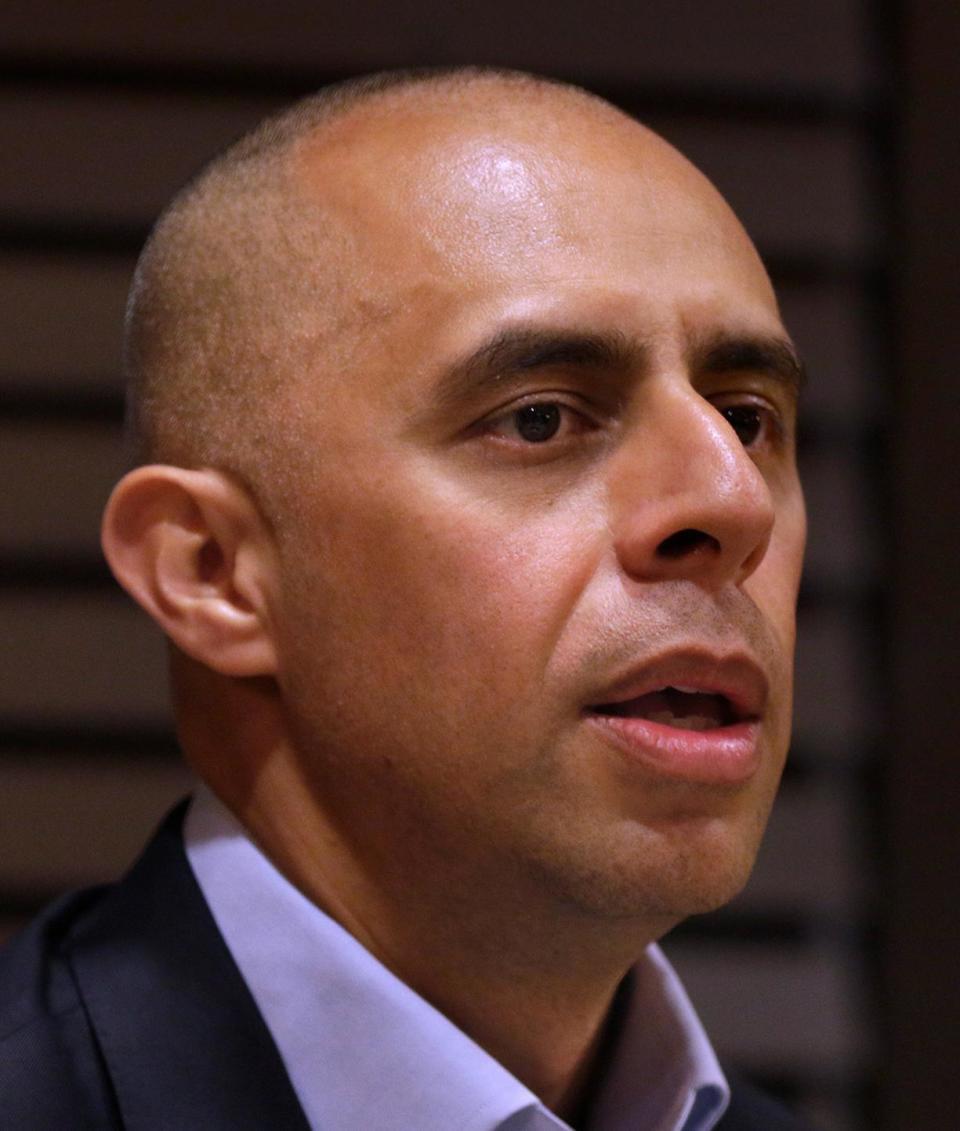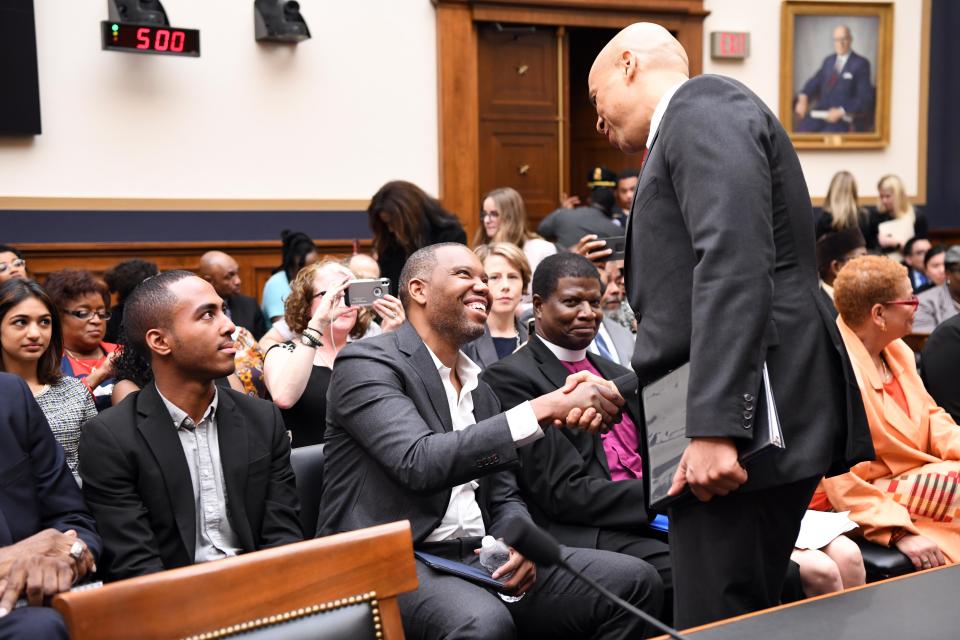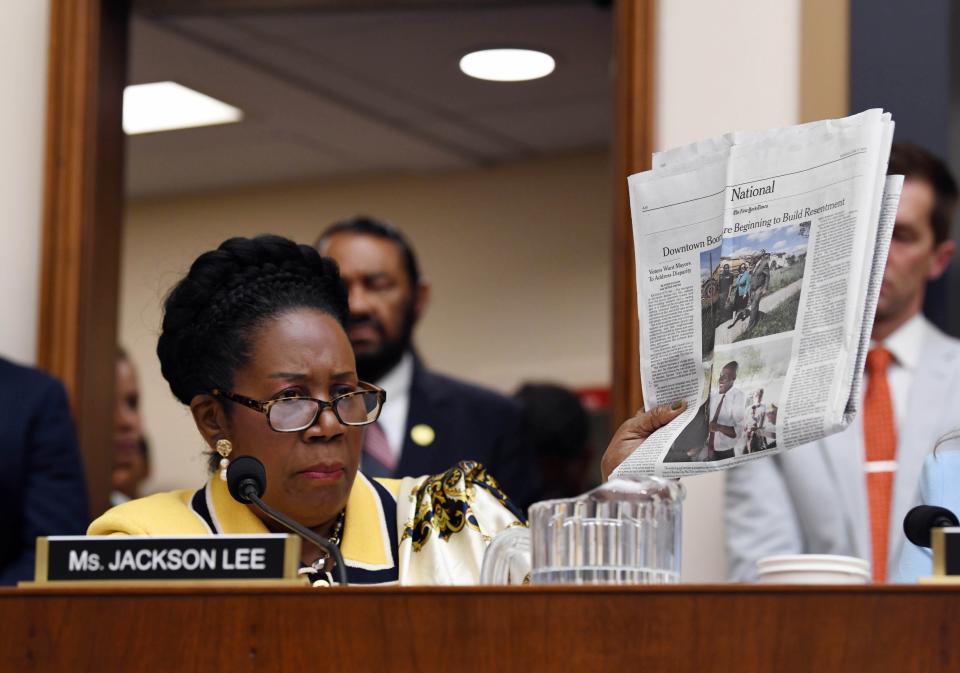'The timing is right for reparations': Cities propose reparations amid nationwide unrest
WASHINGTON – Against the backdrop of protests across the country over police shootings of unarmed Black people and racial disparities, some mayors and local officials propose ways to examine the impact of slavery and help atone for it, including reparations.
From Providence, Rhode Island, to Asheville, North Carolina, officials have proposed measures to begin to address years of what they call injustices in their communities. The measures range from resolutions to support studying reparations to proposals to funnel more funds into programs for Black communities.
“It’s always the right time to do the right thing,” Providence Mayor Jorge Elorza said, noting the social unrest that followed the death of George Floyd, a Black man in Minneapolis who died in police custody May 25. “There is an appetite and an urgency to make the most of this moment and make sure there is real structural change that comes out of it.”
Supporters say there is some momentum for reparations – at least discussions – in the wake of civil unrest, but they acknowledge there is fierce opposition. No country has given monetary compensation to African descendants of the trans-Atlantic slave trade, experts said.
Opponents of reparations, including some Senate Republicans, argue they would cost too much and determining who would be eligible for payments would be difficult. They say Americans should not be held responsible for slavery or its consequences.
Some experts said the push for reparations may have to come from local leaders.
“It’s really local activists and local actors, members of city councils … who are empowered in ways in their small communities to do things and to act outside of what the state would do and even the nation would do,'' said Niambi Carter, a political scientist at Howard University.
Former Brown University president Ruth Simmons talked with USA TODAY's Deborah Barfield Berry about slavery's role in Brown's history. Listen below
USA TODAY News · Why Brown University decided to confront its role in slavery
Asheville a model
Last week, Providence officials pledged some form of reparations for Black people, indigenous people and people of color.
Elorza, Councilwoman Nirva LaFortune and community leaders created an executive order promising “truth, reconciliation and municipal reparations.”
The order requires Providence to seek the truth about the city and state’s role in slavery; promote community discussions around racial injustice; and determine what policies and programs would reverse the harms of slavery and genocide.
Elorza said officials have not determined what kind of reparations the city will provide, but he’s open to ideas.
Elorza said Providence can’t bear the entire burden of paying reparations to its Black residents. He called for all levels of government to join the effort.

The Asheville City Council voted last week to provide reparations by investing in marginalized Black communities.
The city plans to prioritize efforts such as increasing minority homeownership and access to other affordable housing; increasing minority business ownership and career opportunities; closing the gap in health care, education, employment and pay; and changing the criminal justice system so it is equitable. City leaders said they would like to create paths to generational wealth for Black people.
City Councilwoman Sheneika Smith said they will create a plan for funding these efforts within the next year.
“I think with every major civil rights movement, there has been major laws made and policies created," she said. "We have to do what's in our willpower and what is imaginable for us to do."
The National Coalition of Blacks for Reparations in America praised Asheville and Providence for leading the effort.
Kenniss Henry, the group's legislative commission co-chair, said the plans are “long overdue.”
“I think Asheville has the right approach because one of the issues that has to be dealt with in the Black community … is that of the wealth gap; it’s so wide,” Henry said.
'Timing is right for reparations'
Only a few local governments have passed reparations measures, including the California Assembly, which approved a plan last month to create a task force to study how reparations would be implemented. Officials in Durham, North Carolina, approved a resolution supporting national action.
In his first act as president of the U. S. Conference of Mayors, Louisville Mayor Greg Fischer, who took over July 1, proposed a resolution to support a reparations bill introduced by Rep. Sheila Jackson Lee, D-Texas, and Sen. Cory Booker, D-N.J.
“The timing is right for reparations discussions,’’ Fischer said, noting the nation’s history of discrimination. “So much of it has roots in the history of our country, and I’m hoping people are starting to grapple with that, white Americans in particular."
The conference hasn’t taken a position on what reparations should look like.
“There should be more interest in this than ever,” Fischer said.
A historic opportunity
The push for reparations dates back hundreds of years.
This most recent push involves more white people, and some of them ask specifically what Black people want, said Keneshia Grant, a political scientist at Howard University.
“Black people are being clear about the things that they want, and reparations comes up as a potential catch-all,” she said.
Several Democratic presidential candidates touted support for reparations last year. According to a study conducted by the Pew Research Center this year, 63% of Americans say the legacy of slavery continues to affect the position of Black people.
Up until this point in the USA, colleges and universities, including Brown University and Georgetown, have led the way in acknowledging their institutions' connection to slavery and funding programs to study slavery and its impact.
“We’ve never tried anything that looks like reconciliation, reparation, restitution in this country, never,” Carter said. “Quite frankly, the United States has had over a century and a half to get this done and to make this wrong right – and it hasn’t."
William Darity, a professor at Duke University, said reparations for Black American descendants of U.S. slavery should fall to the federal government, which has more resources and has long sanctioned discrimination.
"The federal government is the culpable party, and as a matter of principle should foot the bill for reparations,'' he wrote in an email to USA TODAY. "But the federal government also is the only entity that can meet the bill."
Darity said reparations should eliminate the racial wealth gap between Blacks and whites, which he estimates would cost $10 trillion to $12 trillion.
Darity said that although he doesn't oppose local efforts, they shouldn't be "piecemeal" or called reparations. He said officials should form a coalition to push Congress to adopt a comprehensive national plan.
Much of the debate has been over what reparations would look like. Some have pushed for cash payments to descendants of enslaved Africans. Others have lobbied to put more money into programs that help Black communities.
Much of the resistance has been to cash payments, experts said.
“We got so caught up with this idea of giving people money and all the ways this could be mishandled and abused and misused that we have not thought broadly enough about the range of possibility,” Carter said.
Reparations bill gets new attention amid BLM. Could other nations provide a blueprint?

‘Stain on its history’
Rep. John Conyers, D-Mich., introduced a reparations bill in every session since 1989. It never passed, and Conyers died last October.
In the spring, Jackson Lee and Booker, then a 2020 Democratic presidential candidate, reintroduced legislation that would create a commission to study reparation proposals. It does not propose remedies.
The bill H.R. 40 is named after the “40 acres and a mule” the federal government's failed promised to millions of freed men and women.
Jackson Lee said people need to understand “the nation was built on free slave labor.”
More: Ta-Nehisi Coates, Danny Glover call for slavery reparations before Congress
She called the efforts by local officials "powerful."
"It is government recognizing the failure of government to the descendants of enslaved Africans and taking it upon themselves, as a government, to be the remedy,'' she said.
Last summer, the bill was supported by some Democratic Senate leaders. For the first time, there was a subcommittee hearing on the bill last June.
Ten more Democratic lawmakers signed onto the bill. Jackson Lee is pushing for a hearing and a vote on the bill in the House Judiciary Committee.
Senate Majority Leader Mitch McConnell, R-Ky., said he doesn’t think reparations are “a good idea.” President Donald Trump said he doesn’t see it happening.
Fischer said he hopes members of Congress will act on the reparations bill.
“If not, they’re deaf to what’s happening in our country right now,” he said. “If the will of the people changes, a lot of these folks become adaptable. That’s the kind of hope you have to have with any kind of movement.”

This article originally appeared on USA TODAY: Asheville and other cities consider reparations to address slavery

